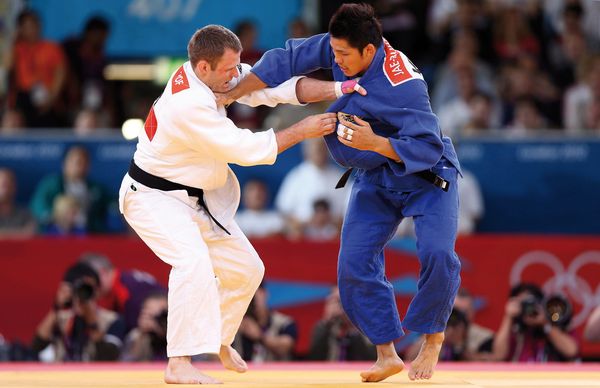Young people can gain immensely from living in the host nation of a major sports tournament. Up to three-quarters of those who view live events testify to feeling inspired to participate in sport themselves

© Korean Olympic Committee CC BY-SA 2.0
Sport in itself has become a major facet of modern society – almost everyone around the world has access to sports as a participant or spectator. The commercialisation of sport has seen its economic presence rise rapidly, while its popularity and accessibility globally has followed suit. The UK sports industry is estimated at 1.9 per cent of the country’s GDP, placing sport in the top 15 sectors ahead of motor vehicles, telecoms, legal and accounting (Sport England, 2010).
With this rise in the popularity of sport, we have also seen an increase in the demand to host major sporting events, a phenomenon some like to refer to as ‘sport diplomacy’.
Countries of all economic, political and societal development levels are bidding to bring the world of sport to their country and experience the benefits of hosting a major games event. Gains for the host nation include increased levels of participation in sport, increased tourism, opportunities for cultural and public diplomacy, and increased investment, which often benefits elite and grass-roots sport through the building of new stadiums and state of the art sports facilities.
However, a factor that often goes unnoticed is the effect this has on young people. Young people in all countries are integral to a nation’s development – and with the large impact that major sporting events have on society, it is important to highlight what this means for the young.
Used in the correct way, and incorporated into areas such as the education curriculum, extra-curricular activities and personal development, sport can help young people gain basic skills, such as teamworking and communication. It can also help develop personal skills like confidence and leadership. However, one question that many will ask is – as a young person, what is there to gain from having a sporting event hosted in your country?
The London 2012 Games is a modern example of how a major sporting event can have a positive impact on young people not just in the host country, but around the world. In the UK’s quest to win the bid for the London 2012 Games, the message was simple: “Choose London and we will inspire a new generation to take up sport.”
In a survey done as part of a UK Sport study, it was established that nearly three-quarters of spectators under 25, and half of all television event viewers under 25, felt inspired to participate in sport after being a spectator at an event (UK Sport, 2011).
With viewership of major sporting events going up and diversifying, through means such as social media and internet television, spectator impact could be a valuable tool for governments and stakeholders that are working to increase the physical activity of their nation – a prominent issue globally, especially in the Pacific Island states.
The Commonwealth Games 2014 is another example of a major sporting event that had a positive impact on young people in and around the host nation. Hailed as “the best Games yet”, Glasgow 2014 had more than 15,000 volunteers who registered as ‘Clydesiders’ and the uptake of the spirit and theme of the Games was abundant across Scotland.
Glasgow 2014 made a conscious effort to host a sustainable event by using some of the already existing stadiums for its competitions, involving many proud Scottish people in the Games through volunteering and investing in the legacy of the contest before it even began.
Glasgow made a strong effort to build on the Games and use them as an opportunity for sustainable development within the sports sector, through initiatives such as their Community Sports Hubs. With the aim of having 150 hubs in 32 local authorities by 2016, young people in Glasgow are sure to benefit from these Games for a long time.
The year 2015 will be filled with major sporting events: the Commonwealth Youth Games in Samoa from 5-11 September; the first European Games in Baku, Azerbaijan 12-28 June; the Pan American Games in Toronto 10-26 July; and the Central Caribbean Games in Mexico from 15-30 November, to name just a few.
Ultimately, it’s evident that there are ways that governments, sports organising committees and various major event stakeholders can use these spectacles to inspire and engage young people in their nation and around the world.
As the demand for major sporting events continues to grow among small, medium and large states, it’s important to keep in mind the opportunities these events bring for young people – especially when a targeted plan is put in place – and legacy projects are an important part of the process.





